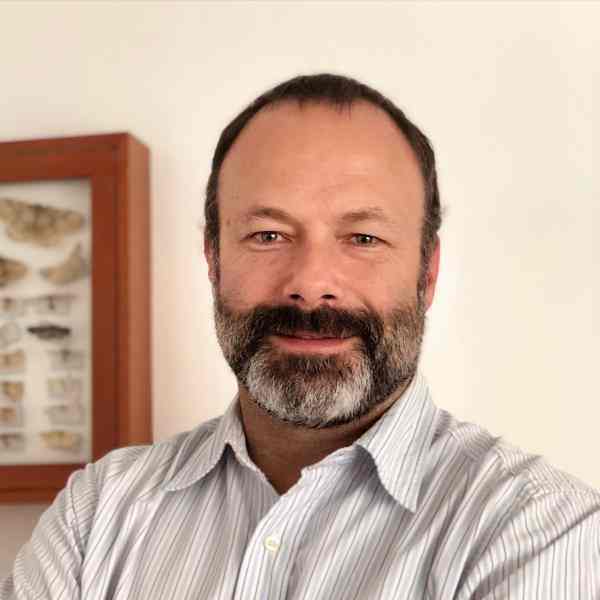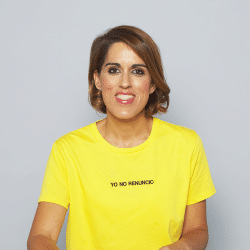Introduction
In Colombia, a country where decades of civil war have kept urban dwellers out of the countryside, Luis Alberto Camargo is fostering a lasting and important connection to nature for all youth. Through savvy business strategy and an innovative teaching methodology, he reaches rich and poor alike while providing powerful experiences to promising environmental leaders.
The New Idea
Luis Alberto Camargo recognizes that young people—the next generation of consumers and decision-makers—cannot be scolded or legislated into caring about the environment. To truly spur them to action, they must feel personally linked to nature. Through OpEPA (Organization for the Environmental Education and Protection), Luis is making a lasting connection to nature accessible to all of Colombia’s urban youth.
Not all interactions with nature are created equal. Month-long treks in the wilderness are more likely to stimulate lasting connections with nature than week-long trips; day-long hikes in the forest are more powerful than classroom sessions. Of course, the more rewarding the experience, the more costly. OpEPA cannot provide intensive wilderness experiences to every young Colombian, so it offers a broad range of programs targeted at different interest levels. Hands-on classroom activities will reach all of Colombia’s youth while month-long wilderness treks are reserved for those who emerge as the most promising future environmental leaders.
Nature itself provides the pith of these experiences, but two key elements transform an ordinary forest into a training ground for Colombia’s future environmental defenders. The backbone of Luis Alberto’s work is a teaching methodology that breaks down the barriers that modern urban life erects between people and their environment. His programs encourage youth to consider what traits they share with elements of the natural world and teach them to question their relationship to nature and to the peers with whom they share the experience. The second key factor comes from Luis Alberto’s practical side. Through a savvy business strategy and cross-subsidies, Luis Alberto plans to spread his program—and therefore an environmental ethic—to all Colombians, rich and poor alike.
The Problem
Colombia, like many of its neighbors, suffers from serious environmental degradation. Deforestation, high levels of urban waste, and reduced air quality are just three of a litany of similar issues. The environmental movement in Colombia has employed the range of conventional tactics to address these issues. Public awareness campaigns have dotted the airwaves, and legislative changes have improved the legal basis for pursuing polluters. But young people—the next generation of consumers and decision makers—cannot be scolded or legislated into caring about the environment. To truly change the way they approach environmental issues, they must feel personally compelled to transform the status quo.
While urbanites worldwide may be notoriously removed from nature, Colombian citizens are particularly disconnected. Several decades of civil conflict made travel outside of Colombia’s cities dangerous. Although recent advances have secured peace for broad sections of the country, the damage has already been done. Once popular, country homes and peaceful rural escapes have all but disappeared. Nature and life outside of the city hardly fall within the younger generation’s frame of reference.
Private adventure and ecotourism enterprises do offer opportunities for youth to venture out of the cities. But these profit-generating companies don’t see the relationship between clients and nature as core to their mission. As a result, they make no special attempt to generate a meaningful relationship between participants and their surroundings or to cultivate a sense of responsibility for preserving it. In most cases there is no educational bent, making it difficult for youth to begin thinking critically about their surroundings. And once a trip has ended, the experience is over—opportunities for follow-up do not come with the package.
In many countries, schools play an important role in fomenting environmental consciousness among students. Colombia’s schools have failed on this front. Environmental education, when it does happen, tends to be dry and disconnected from daily life, its core goals educational rather than emotive. Students never learn to see themselves as a part of the natural world and may never even have direct contact with nature as part of the experience.
While these problems hold true for all of Colombia’s urban citizens, opportunities to connect with nature are especially hard to come by for the urban poor. When food and shelter are a daily struggle, travel for pleasure becomes difficult and ecotourism impossible. Poor schools also offer students fewer hands-on opportunities to connect with nature. When resources are scarce, elective subjects like environmental education are the first to be cut.
The Strategy
OpEPA cannot bring all of Colombia’s urban youth into nature, so instead, using the education system, it is bringing nature to Colombia’s youth. Through agreements with local districts, Luis Alberto is making a new type of environmental education available to the nation’s schools, already reaching over 8,000 students in 20 high schools. It begins with direct services—interactive on campus and off campus classes for students taught by OpEPA staff. But it extends to the entire system of science education with teacher training and easy-to-use manuals that help educators make in-school learning more relevant to their students’ daily lives. OpEPA supplements better teaching with easy access to nature. It has created the “eco-bus,” a prototype for what will become a fleet of traveling science and nature study centers parked in school lots throughout Colombia. An award-winning business plan (Ashoka-McKinsey Business Plan Contest, 2nd place) foretells of environmental education centers on the outskirts of each major city. The first, already in construction outside of Bogotá, combines the simple science tools of the eco-bus with pristine nature and trained professionals to facilitate the learning process. While partnerships with public districts have proven effective so far, Luis Alberto is tapping into Ashoka Fellow Vicky Colbert’s network of hundreds of progressive “Escuela Nueva” schools to accelerate his spread throughout Colombia.
To build on this educational base, Luis Alberto is introducing a new type of environmental excursion—one with a strong educational component—into the Colombian context. These trips take many forms, ranging from a day to a month in length and from simple hikes to intense wilderness experiences. But they all share one common tie—a pedagogical method that draws deep ties between participants and the world around them. OpEPA staff work closely with youth to examine nature while simultaneously questioning their everyday interactions with the environment and their place in the world’s ecosystem. These experiences ultimately aim to produce what Luis Alberto calls the “magic moment,” when a young person is suddenly and profoundly struck by a new sense of his or her role in nature and society. Participants break existing paradigms and simultaneously create space for new and lasting paradigms to form.
Whether classroom- or wilderness-based, OpEPA’s environmental education programs begin by sparking a connection between young people and nature. Luis Alberto sees that this interest can only be sustained through concrete opportunities for action, but he also recognizes that providing these opportunities is not OpEPA’s core competency. So OpEPA draws on a menu of follow-up programs created by other organizations, each giving young people leadership roles and the chance to take the initiative in improving the environment around them. To date he has established partnerships with Ashoka Fellow Ricardo Bertolini’s Eco-Clubs program and the Australian Clean-up-the-World Campaign to provide OpEPA participants the opportunity to put their environmental leadership to practice. Bertolini has trained OpEPA staff to manage and guide youth through the creation and execution of their own environmental ventures while OpEPA has engaged young leaders in their own initiatives by launching Colombia’s arm of the Clean-up-the World Campaign.
These three major components of OpEPA’s work—education, excursions, and action—bear a structured relationship to one another. The first represents Luis Alberto’s idealistic and impassioned side through his desire to reach all of Colombia’s youth with opportunities to connect to nature. The second is a manifestation of his practical side. Taking all of Colombia’s young people into the wilderness for intensive outdoor experiences simply isn’t feasible. So Luis Alberto targets these activities at young people that show special sparks of interest during OpEPA’s more basic activities. The organization always provides opportunities to stay in touch and continue involvement with OpEPA and other environmental causes. Those with the deepest interest self-select for further involvement with OpEPA and thus open the doors to participate in the more intensive and meaningful outdoor excursions.
When Luis Alberto talks about access to nature, he talks about access for all, regardless of financial status. From its very founding OpEPA has been a profitable and sustainable institution. Whether school districts or individuals, wealthier clients pay more than enough to cover costs and cross-subsidies allow access for clients that cannot pay. As a result OpEPA works in poorer school districts as well as the affluent and always plans outdoor adventures for groups with mixed socioeconomic background. The Interactive Center planned for the outskirts of Bogotá will only enhance OpEPA ability to reach all strata of society. Income generated through visits to the center will fund a large portion of the organization’s operational expenses as well as broad access to the programs for poorer Colombians.
The Person
Luis Alberto had an early life that most Colombian’s would envy. From a strong family, he attended Bogotá’s top schools before leaving his home to study Mechanical Engineering in the United States. But the older he grew, the less comfortable Luis Alberto felt with his life. Convinced that his vocation was the root of his unhappiness, he made a career change to pursue a graphic design and communications master’s degree in New York. But while this new profession did not resolve his unease, something surprising in New York did: nature. Luis Alberto reveled in his discovery of forests, edible plants, and wild species among the city’s cement blocks. His eventual thesis topic, drawing on the communications side of his degree, looked at the personal motivations and attitudes behind environmentalism.
Reflecting on his past, Luis Alberto recognized the power nature had always held to bring him happiness. This had been true from his earliest years, on trips to a family farm and on vacations outside the city. Always active in clubs and outdoor youth groups, Luis Alberto returned to Colombia determined to do something more for Colombia’s environment.
At first working with activist groups and later helping draft and push through Colombia’s first environmental legislation, Luis Alberto became dissatisfied with the state of what he describes as “9 to 5 environmentalism” in his country. He fulfilled his deeper longing to connect with nature by organizing and leading several expeditions, including the first Colombian expedition up Mt. Everest. But this only strengthened his desire to give others what he had gotten from nature and to move environmentalism beyond the realm of public policy.
For years, Luis Alberto had been collecting a set of experiences that he felt were leading him toward a dream of helping all of Colombia’s youth connect to nature: his expedition to Mt. Everest, years of wilderness guide training, work with U.S.-based models for wilderness and experiential education. Nine years ago, Luis Alberto found himself on an 11-month tour of 50 national parks in South America. As he guided a group of his companions through their newly found awe in nature, his longtime dream become a concrete proposal. At the age of 29 he returned to Colombia and founded OpEPA.




